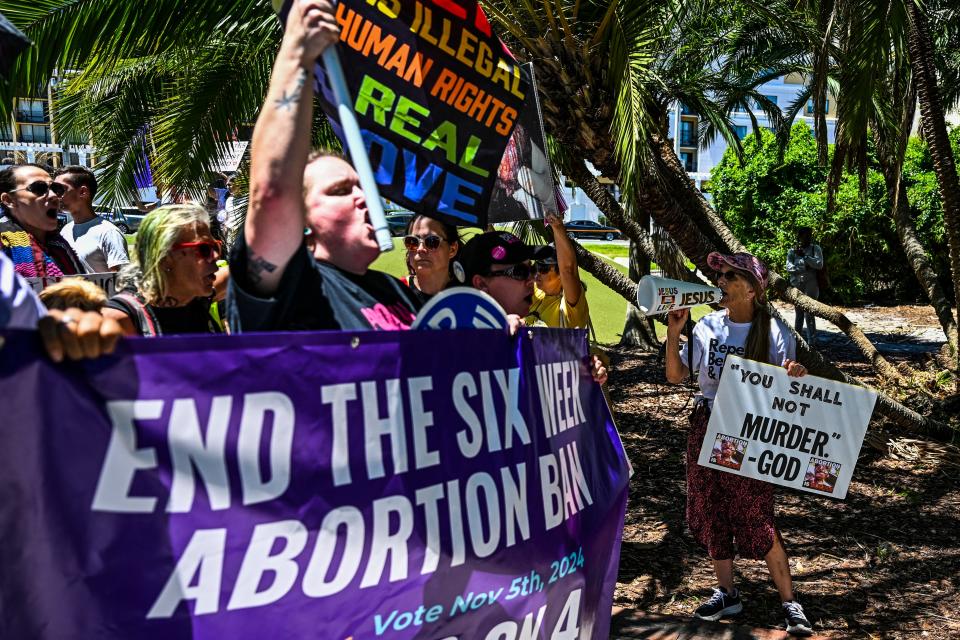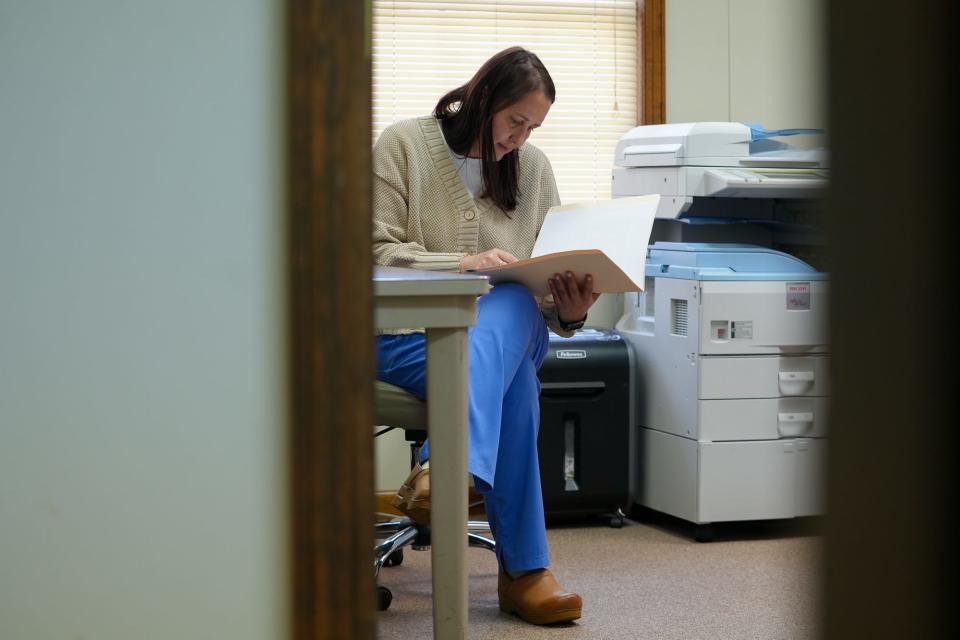Region by region: How these states could broaden abortion access
The year began with nationwide conservative efforts to shrink abortion access. Advocates for the procedure hope to end 2024 by reversing some of these restrictions, via the ballot box.
And the outcome of their efforts could have major implications for something opponents have long waged war on ? interstate abortion travel.
With ballot initiatives underway in nearly a dozen states to let voters weigh in on where to set the limits, the success or failure of these measures will have impacts beyond state lines and on regions broadly, advocates told USA TODAY.
Acting as a sort of sanctuaries for neighboring abortion access deserts, states with more liberal abortion laws have seen an influx of out-of-state patients since the overturning of Roe v. Wade, the landmark 1973 case guaranteeing a constitutional right to the procedure.
And a slew of proposed abortion-related constitutional amendments in 2024 could add to the map.
How many people got abortions in 2023? New report finds increase despite bans
“Unless there's a national right to abortion care, we're absolutely doing it state by state, community by community as best as possible,” said Adrienne Mansanares, president and CEO of Planned Parenthood of the Rocky Mountains.
Abortion travel escalated post-Roe
After the U.S. Supreme Court overturned Roe v. Wade and decades of federal abortion precedent in June 2022, decisions around the procedure and any limits or exceptions returned to states, creating a nationwide legislative patchwork.
Over a dozen predominantly red states have implemented near total bans on abortions, while a handful of blue states including Oregon and Vermont allow abortions regardless of the gestational period, according to the Guttmacher Institute, a research group that supports abortion rights. Some states restored an abortion limit similar to that of Roe.
The varying laws have led to a rise in patients traveling between states seeking an abortion, Mansanares said.
Planned Parenthood’s health centers in Colorado, a state with wider abortion access, saw a tenfold increase in patients seeking care from nearby Texas, Oklahoma and Arizona between 2020 and last year, according to the organization's records. In October 2020 through September 2021, their Colorado health centers saw 374 of these out-of-state patients; from October 2022 through September 2023, the clinics served approximately 3,800 patients from the same three states. Over 75% of these women scheduled appointments for abortions.
The bulk of women came from the Lone Star State, where the procedure is almost completely banned.
"When state bans go into effect, they impact the entire country,” Mansanares said.
This year, voters in at least three states will decide whether to enshrine abortion access in their constitution. And there are still ongoing initiatives to add such a decision to the ballot in about a dozen more states, including Colorado.
If passed, these referendums could cement some states’ statuses as abortion access points, while opening new points of access in others.
Women travel both to and from Florida for abortions
Sitting in the southeast where some of the country’s tightest abortion laws are concentrated, Florida has been a relative haven for patients in the South in the wake of Roe’s overturning.
But with the state’s current 15-week limit about to drop to six weeks, after a recent state Supreme Court ruling, women in Florida and the surrounding region could face a shortage of care, said Serra Sippel, interim executive director of The Brigid Alliance, a group that provides resources for abortion travel.

Already, Florida is among The Brigid Alliances top states from which they help patients travel, often seeking abortions in D.C. or Maryland, Sippel said.
And she said the group is bracing for this need to grow after May 1, when the six-week limit is set to go into effect.
November ballot measure could change Florida yet again
The Florida Supreme Court at the same time cleared the way for a measure protecting abortion through viability, often around 24 weeks, to appear on November’s ballot.
Tami Fitzgerald, executive director of the “100% pro-life" group North Carolina Values Coalition, said she is worried about the effects of both Florida court decisions in her own southern state.

“All states in the South, once Florida's heartbeat bill goes into effect, will have either a heartbeat bill or a gestational limit at conception,” Fitzgerald said. “And so that means North Carolina's 12-week limit on abortion will cause women to flood across our borders, again, to obtain abortions.”
Along with Virginia, which allows abortion through 26 weeks of pregnancy, North Carolina has some of the lowest restrictions on the procedure compared to the rest of the south. Even after the state legislature last summer lowered the limit from 20 to 12 weeks, with exceptions, North Carolina saw one of the highest number of out-of-state patients in 2023, behind Illinois, according to the Guttmacher Institute.
Fitzgerald said she wants a limit like other southern states for the Tar Heel State and is concerned about referendums like Florida's.
“It should be a concern for everyone who believes in the sanctity of human life,” she said.
Travel for abortion care is 'not ideal'
Still, abortion access advocates say interstate travel is an imperfect solution.
“It is not ideal," said Tara Romano, executive director of Pro-Choice North Carolina, “because not everyone can leave the state to access abortion. And this is really just how chaotic it's been since (Roe was overturned).”
“If you're in a state where you cannot access abortion, being able to get to another state is going to be really critical,” she added. “It's just that it's not going to be able to help everyone,” including patients in emergency situations, Romano said.

For those seeking an abortion, Mansanares said considerations range from travel costs to finding somewhere to stay in a different state, along with taking time off work and, for the many women who are already parents, finding childcare.
“It's a huge financial burden. And then the act of traveling out of your home state for care has a tremendous psychological impact as well,” Mansanares said. “Our patients are very fearful. They experience a deep amount of shame or stigma. Many of them feel terrorized."
And aid from organizations like The Brigid Alliance are “being stretched to the max, Sippel said.
“I want to emphatically say that it's a good thing that this referendum will be on the ballot,” Sippel said of Florida. “If it's passed, that is excellent news for Florida. And then, of course, it won't be enough.”
This article originally appeared on USA TODAY: Abortion travel could get harder, easier with these ballot measures
